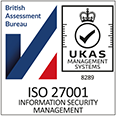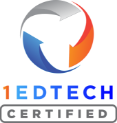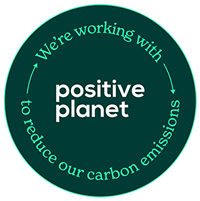Rachel Catton from Wakefield Learning Academy on ‘Professional Uses’. This recording is from our 2022 MiniBash community event which was hosted in Birmingham, England. Videos are for educational personnel only and require a live educational email to watch. You can read the video transcript below.
Transcript:
Thank you very much. Sorry. Sorry about that. Little bit of technical difficulties there. So as we’re saying, what is the Wakefield Learning Academy? So what it is is we actually work for Wakefield council. So we’re actually part of the local authority.
So we are the children and human people service.
And the children and human people service has four direct So we have children’s social care which does all kind of frontline social care safeguarding, all those kind of things. We have education and inclusion, which is all the services to schools which are not delivered by the schools themselves. Things like educational psychology, send services, things like that. Our strategy and innovation team which does things like youth services, and our children’s well-being health and well-being service which looks after kind of public health.
So as part of that service, we support all the learning and development opportunities for staff working within those directorates.
And one of the services that we need to support is our frontline social workers.
So these are people undertaking their first year in employment. So they have recently graduated from either an undergraduate or BA or MA in social work. And they have to come along to us and complete what is called an assessed and supported year in employment.
So it is the first year where they have to do a progressive assessment, which is kind of its link to fitness to practice.
So When you qualify as a social worker, you have to register with social work England, which is the national body for social work. And you have to complete successfully complete your ASYE, your assessed and supported year in employment to maintain your professional registration and your fitness to practice.
So as part of that, the government in in the form of of the department for employment have given that task to an organisation called Skills for Care, which sets out what needs to be achieved in this first year, this assessed and supported year in employment. And the idea is that the social worker comes in to employment.
They are still being supported, so they have a reduced caseload.
So they are not meant to have the same number of cases that an experienced social worker would be expected to have.
They are expected to be supported by an assessor and be gradually progressing in their skills and knowledge.
So that originally, they would be co working with more experienced colleagues. So they would not be doing kind of serious child detection cases until later on in the year. So the idea is that they develop their skills, they are supported, they have a reduced caseload.
And in order to maintain their registration and complete effectively complete their probationary year, they must complete the ASYE.
So that is the background to who we are and what our kind of need was.
So what were we kind of looking for?
We kind of This kind of came about because in 2018, unfortunately our children in people service was judges unsatisfactory by Offstead.
And part of their recommendation in the report was that we were not providing adequate support for newly qualified social workers.
And that that needed to improve in order for us to kind of gain a better ofsted rating. The next time they came when we were in we needed to be able to show that we had given that support to our social workers. So as part of that, What we did was establish a ASYE academy for all newly qualified social workers with a dedicated member of staff who could deliver training to them two days a month where they could come out of their workplace be with their peers, have some training, and also have some portfolio time to complete their portfolio.
Which is where we’re coming onto PebblePad. So previously, we had used a paper system. So it was literally a lever arch folder with lots of different bits of paper in and quite often five or six versions of the same thing.
And we wanted to to kind of get away from that. And so what we wanted to do is when we started our search provider, we wanted somebody who had familiarity with the social care system.
Because I have been involved in similar projects before, and they can take a number of years to come to fruition.
If the organisation doesn’t have an understanding of what you want and your needs. So you need somebody who when you’re talking about this kind of goes, yeah, I understand that. Or I’ve got a similar system that we can adapt.
Or, yes, I’m I’m willing to work with you on that.
So we had quite a short lead in time because we needed to demonstrate progress for Offsted because as part of that, the government appointed a commissioner to come in to oversee the kind of journey back to to good and beyond.
So we wanted a system where we would be able accessible for both our learners and our assessors, and we wanted something where we would be able to monitor progress.
And kind of show that progress to kind of external people. And one of the other reasons that we kind of looked at Pebble Pad as one of our providers was we have students that come to us on placement. So from the local what it’s called, it’s it’s not very snappily titled because it’s the leads and Wakefield social work teaching partnership, but our local teaching partnership.
And as part of that, one of our universities who we receive a lot of our learners from was already using PebblePad.
So it meant that we had some people who had familiarity with that part of the list. System already. So it wasn’t gonna be such a big jump for us. So we can say, we might not be running it in quite the same way as she’s experienced at university. But you will know how to use it. So that’s kind of like the background of what we were looking for.
And we we took on PebblePads again as some of the other speakers have mentioned just just before COVID.
So we’d kind of got things up and running.
And then then we had had COVID. So we do have training As part of our induction, all our newly qualified social workers take undertaking an induction program, and we do pebble pads, and we make sure they They don’t leave that first induction session without being able to to operate it successfully.
As we said, it’s a twelve month progressive assessment, but by under the regulations, we have to have a three month review. Where everything is signed off as we go along. And one of the unique parts of what we do with the PebblePad is that we don’t release the next section until they have completed the first. And I’ll show you that in a moment.
We also have an area where we have templates because as part of it, we have to have feedback from our service users and other professionals, and we unfortunately due to the nature of the work that we do in that it is front line safeguarding, we are unable to give devices to our service users asked them to sign things off. So we did have to do a work around in terms of having templates that people could sign because we couldn’t do do that. We also have a section.
A very small number of our learners will need to go on an action plan, a support plan because they are not meeting the requirements. But we didn’t want to kind of freak people out by them looking at things So what we did is we had a assessor only section, which is only activated they’re on a support plan. Anybody else looking at that section will only just count there’s nothing happens when you press that button basically. So only the people that need that section, see that section.
So I know I’m kind of only got a minute or two left. So what I would say is I’ve been asked to kind of say, what were the advantages of kind of using PebblePad is we could use it to demonstrate progress we’ve made for Ofstead and just to kind of ring our bell here where we were recently re inspected and have made one of the fastest progress in the country. I think we’re the second quickest at getting out of unsatisfactory. We are now good with outstanding leadership. Yay.
We like PebblePad because it and how we’ve done it because it’s highly structured. You can’t jump ahead.
We do get funding for our learners. And through this model, we can have accountability.
For public funds, which is is very important.
I also meet colleagues from other regional areas where we moderate some of the work that we do. So PebblePad is great for being able to dip into and get dip sampling so that we can anonymise that very quickly and take it to regional moderation.
What I would say is, as I’ve already mentioned, our personal challenges were allowing other users to the site because of the nature of the work that we do and getting signatures when we can’t hand over devices.
This is this is our PebblePad site. And as you can see there, we’ve got the sign up where they do all the initial documentation.
We’ve got not three months, and then it will move on from not three months to three to six months.
And then that’s our assessor only section there. And just the final bit, what what what’s the future hold for for us? We’re only a small project But we want to use PebblePad to do some more monitoring and evaluation.
The focus nationally has moved from the learner to the quality of the assessment and the assessor and making sure that what they’re doing is good. So what we’re looking at is do it using PebblePad so we can standardise the work that we’re doing. So what does good look like? Those kind of exercises.
And currently, we only moderate at the end of the program, which does have some disadvantages, so we want to move to a a three monthly moderation panel, and we hope that by using PebblePad that will be easier because as you can see it’s sectioned off. So that’s that’s our future. And if you’ve got any questions we are about, My colleague Liam is here as well.
And that’s us. Thank you very much.







